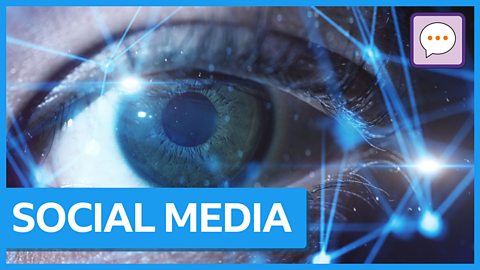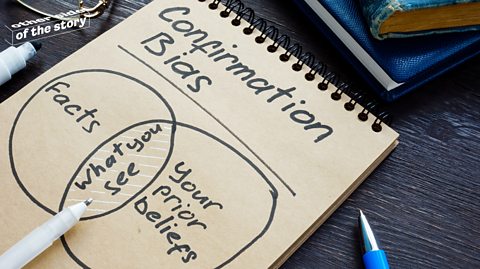When you’re together with friends, you might have the odd disagreement here and there – but you’ll probably all share similar opinions deep down and might forget that there are other people who think differently.
These shared views can bounce off each other and make your own voice stronger, like an echo. They can also be found everywhere online, as groups of like-minded people chat in forums and comment sections.
But these echo chambers can change our perspective, making it difficult to understand opposing viewpoints and more likely to be taken in by false information. Watch the clip below to find out more.
Do you ever find yourself in a group where everyone seems to share the same thoughts and opinions? This is common on social media where we tend to follow accounts and people we agree with. We call environments like this – where you only get perspectives that reinforce your own – echo chambers.
Echo chambers can cause us to believe misinformation, which can lead to making bad choices and can even make it easier to get scammed – like the emperor and his famous new clothes.
The emperor always wanted the latest and greatest fashions. So when he discovered a new designer who claimed to have a fabric invisible to fools and failures, he immediately bought into the hype. As did all his friends and followers, which only made him more certain that the hype was real. So he paid the designer a great sum for expensive materials and magical threads.
The designer’s sewing machine always looked empty, but the positive comments kept flooding in, and the emperor became more and more excited. And when the designer finally finished, everyone marvelled.
Then he put on the new clothes and paraded through the city, until finally one little child shouted, “He’s naked!” The emperor was horribly embarrassed. Partly for being naked, sure, but mostly for having fallen for the designer’s trick.
Following a few tips can help you avoid a similar fate. First, for any claim, check for supporting facts and evidence; regularly interact with people who hold different perspectives from you; and always check multiple sources for news and information. Follow those tips and the truth will… reveal itself.
Escaping your echo chamber
We might find ourselves in echo chambers because of confirmation bias, as we want to have our existing beliefs confirmed by others.
And just like with confirmation bias, echo chambers can help spread false stories. If you share a story that appeals to everyone else in your echo chamber, it can spread much faster and get really popular – even if it isn’t true.
You can escape from echo chambers by looking at other points of view from places you wouldn’t normally visit. You don’t necessarily have to get the exact opposite opinion to your own – sometimes this can be counter-productive and lead you back in to the echo chamber where your point of view feels shared and safe.
Social media platforms also make a note of everything we like and share and use this data to feed more of the same thing back to us. They use computer programs called algorithms, but to get round this you could follow a few accounts that you don’t always agree with – that way the algorithms will learn to suggest different posts with a variety of viewpoints.
Make sure to question what you are reading, seeing or reacting to and pause before you share.
How algorithms and filter bubbles decide what we see on social media
Find out how fake news can often be spread more easily in a filtered social media feed.

What is confirmation bias?
Sometimes we only look for news & stories that confirm our beliefs, rather than challenge them.

How false information spreads
Fake stories aren't just in 'the news' - they can be found in memes, videos and screenshots too. But how do they spread so quickly around your contacts and feeds?

Fact or Fake?
Find out how to spot and stop fake news with BBC Bitesize.
